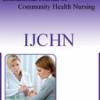Volume 10, Issue 2, 2023

Mcmed International
International Journal of Community Health Nursing
Issn
XXX-XXXX (Print),
XXXX-XXXX (Online)
Frequency
bi-annual
Email
editorijchn@mcmed.us












